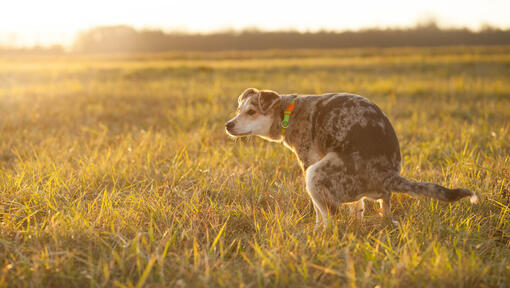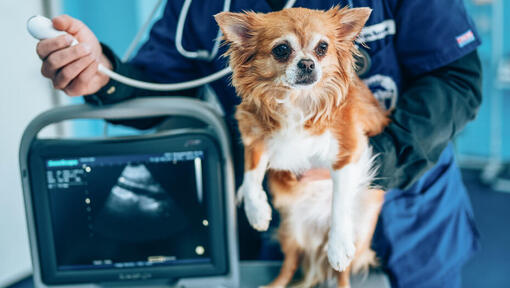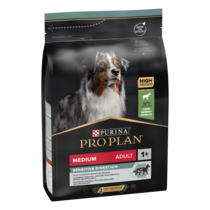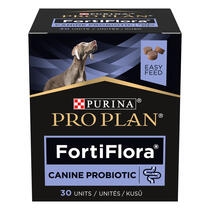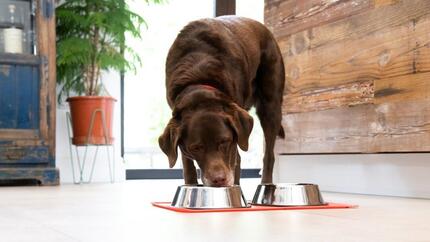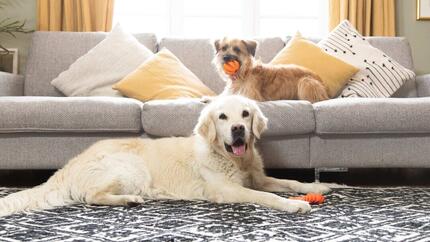
Colitis in dogs is a condition that can cause your four-legged friend to have diarrhoea which can be quite painful, but luckily, with the correct treatment, colitis can go away relatively quickly. Find out all you need to know about the possible symptoms and the treatment options with this guide.
There are numerous conditions which may cause your four-legged friend to have diarrhoea, one of which is colitis in dogs. This is very unpleasant for them and can make it painful to go to the toilet, so it’s important that veterinary help is sought as soon as possible for diagnosis and prompt treatment.
If you suspect your dog has colitis, keep reading to find out about the symptoms of colitis in dogs and the current treatment options available.
What is colitis in dogs?
Colitis in dogs is a condition that refers to the inflammation of the large intestine or colon. It will commonly display as diarrhoea or loose stools which will usually contain fresh blood and mucus. Additionally, these stools may be difficult to pass and can cause pain when toileting.
What causes colitis in dogs?
There are numerous possible causes of colitis in dogs, from eating anything unusual to something more long-term such as irritable bowel syndrome. The most common causes are:
- Stress: this can put pressure on their immune system.
- Eating something unusual or a foreign body.
- A gut infection.
- Worms or parasites.
- Food allergies.
- Immune diseases.
- Irritate bowel syndrome (IBS).
- Injury or damage to colon.
- Pancreatitis.
Symptoms of colitis in dogs
The symptoms can vary from dog to dog, but the most typical signs are:
- Runny, more frequent faeces.
- Faeces containing fresh blood and/or mucus.
- Pain when going to the toilet.
- Constipation.
- Lack of interest in food or unusual eating habits.
- Weight loss.
- Increased flatulence.
- Lethargy.
These symptoms may come on suddenly (acute), or they may last for several weeks or be recurring (chronic).
Diagnosing colitis in dogs
If you suspect your dog has colitis, take them to the vet right away for examination. Your vet will check your dog’s history to rule out any other conditions and will likely request a stool sample so they can search for the presence of worms or other parasites.
In some cases, X-rays and/or ultrasounds may also be carried out to look for possible foreign bodies or obstructions in the digestive tract. Blood counts, colonoscopies or colon biopsies may be required too to try and identify the cause of the colitis.
Colitis in dogs treatment
There are a few possible treatment options, depending on the cause of colitis. Firstly, your vet will likely try and tackle the problem from a nutrition point of view and may suggest a period of fasting that will range from 24 to 48 hours in order to let the digestive tract rest. Alternatively, they may suggest a bland diet such as boiled chicken and rice or prescribe a veterinary diet instead. Find out more information on feeding your dog rice here.
If this issue is due to worms or parasites, then the method of treatment for colitis in dogs will likely include a worming treatment and further advice from your vet on when and how to administer it.
A few other treatment options may be probiotics to improve gut health, antimicrobial drugs to treat infections if present and anti-inflammatories to reduce inflammation and pain of the gut.
If your dog is prescribed medication to treat the colitis, always make sure you follow the course as instructed. If you don’t, there’s a risk that the colitis will return. After the course has finished, if your dog isn’t showing signs of getting better take them back to the vet for further treatment.
Preventing colitis in dogs
Once veterinary help is sought, colitis in dogs usually resides quite quickly. However, if your dog is prone to issues such as colitis, there are a few things you can do to prevent it in the future. For one, if the root of the problem lies in them consuming things which aren’t good for them while out on walks, consider teaching them the ‘leave it’ command or keeping them on the leash in order to stop scavenging.
If the issue is linked to their food, consider a slow and steady diet change – your vet will be able to advise on the best option to suit your dog and their unique dietary needs. Finally, always be sure to worm regularly to prevent parasite-related issues.
That’s our guide to colitis in dogs! Is your dog suffering from a different dog illness with similar symptoms? It may be gastroenteritis in dogs instead! Find out all about it with our guide.


